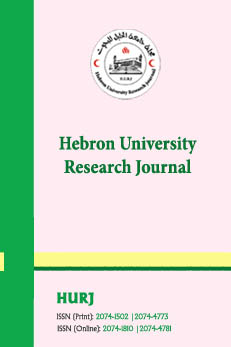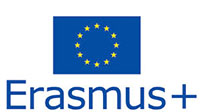Medical Laboratory Science Department
Course Description
View Course description as PDF file:
Specialization Compulsory Requirements
85111 Cell biology
The course deals with concepts involving living cells and the differences that exist between animal, plant, bacterial, and fungal cells. The course identifies the core structural parts and organelles in cells and their functions; the relationship between the cell and its extracellular matrix; Cell replication/cycle and molecular mechanisms involved. The following subjects are also covered: Apoptosis and molecular pathways, the role of the cell in generating bioenergy and metabolism, the role of the cell in expressing the genetic material, and the cellular, structural and functional roles of the primary metabolites
85111 Cell biology Lab
The cell biology lab contains range of experiments involving techniques necessary in cell handling. The subject covers experiment on the use of microscope, histochemistry, electrophoresis, cellular enzymes, membranes, and microsomes, cell cycle, differentiation and culture techniques.
85213 Histology
The course provides an introduction to histology techniques and comprehensive information about the structure, composition and functions of different body tissues. The course covers the advances on techniques involved in tissue isolation and assessing their function
85214 Histology Lab
This course is a practical study of the human body systems and of the microscopic anatomy: cells, tissues, organs, and organ systems
85221 General Biochemistry
Course topics include: description of the main biochemical components in living organisms, biochemical interactions and their consequences. The course focuses on water, proteins, carbohydrates, lipids, and nucleic acids. Enzymes structure, expression, mechanism in mediating biochemical reactions, kinetics and controls will be discussed. In addition, the main biochemical concepts regarding the different metabolic pathways of biomolecules; carbohydrates, lipids. Proteins and nucleotides. Storage and expression of genetic information will be covered in this course
85222 General Biochemistry Lab
Application of basic methods in the identification of sugars, proteins and fats. In addition to the analysis of these groups in biological fluids and analysis of enzymatic reactions
85231 Microbiology
The course includes a general introduction and fundamental concepts of microbiology and bacterial cell structure; Microorganisms classification, structure, metabolism, and their relation to disease. Structure, function and pathogenesis of viral and fungal disease in different organ systems are also covered
85232 Microbiology Lab
This practical course covers various topics such as: introduction to techniques in microbiology; rules and general safety in handling microorganisms; isolation, cultivation and microscopic examination of microorganisms
85232 Parasitology
The course deals with the following topics including: introduction to parasitology; terms and definitions (parasitology, parasitism, and host relationship; protozoa: malaria, leishmania, toxoplasma, and others, trematodes; cestodes, nematodes, arthropods); signs and symptoms of parasitic disease; and serological tests in parasitology
85234 Parasitology Lab
The course deals with the following topics including: introduction to parasitology; terms and definitions (parasitology, parasitism, and host relationship; protozoa: malaria, leishmania, toxoplasma, and others, trematodes; cestodes, nematodes, arthropods); signs and symptoms of parasitic disease; and serological tests in parasitology
85247 Immunology and Serology
This course discusses the science of immunology and serology through the study of theories and applications related to normal body defense mechanisms. Topics in this course include the immune response, principles of antigen-antibody interactions, and the principles of serological tests. This includes performing serological procedures used to help in the detection and diagnosis of some diseases. During this course, special prominence is placed on correlating of laboratory results with the patient's possible condition.
85248 Immunology and Serology lab
Laboratory component of the course, includes the study of the body's immune systems and the clinical testing methods used to evaluate the immune system. The chemical properties and physiological behavior of antigens, immunoglobulins, and complement are discussed in detail along with the cellular interactions vital for proper functioning of the immune system. Serological diagnostic procedures in the laboratory include application and interpretation of tests for a variety of immune disorders and infectious diseases
85315 Endocrinology
The course includes: Introduction to endocrinology; biological factors influencing hormone production; hormones biochemistry and their actions; pituitary gland function; thyroid and parathyroid hormones; adrenal gland hormones; hormones of the pancreas; gastrointestinal hormones; hormonal control of growth; endocrine system control of reproduction; and diseases associate with endocrine system
85323 Molecular Biology and Human Genetics
The course describes the molecular structures of the nucleic acids (DNA and RNA), intermolecular forces and the sub-cellular organelles involved in the biosynthesis of nucleic acids and proteins. The molecular processes in the functions of nucleic acid in forming functional and structural proteins will be discussed. Genetic mutation, DNA replication, transcription, protein synthesis, and the genetic messages involved will be comprehensively covered. The course will emphasize advances in techniques related to molecular biology and genomics
85324 Molecular Biology and Human Genetics lab
The course is designed to provide students with a skills related to cellular and molecular biology and human genetics. Models of human genetic disorders will be thoroughly discusses
85325 Clinical Biochemistry
The course includes the following topics: Normal functions of the different body systems including hormonal, skeletal, renal, gastrointestinal, hepatic, cardiac and respiratory systems; abnormal metabolic processes associated with diseases related to different body systems.
The course also covers a range of metabolic disorders associated with the progression of diabetes, hyperlipidemia, cancer and other diseases related to minerals deficiency
85326 Clinical Biochemistry Lab
Introduction to clinical biochemistry techniques; laboratory tests: handling different patient’s samples, running a range of clinical tests involving proteins, hormones and nucleotides. Interpretation of the results and diagnosis of diseases based on clinical data are also covered
85327 Metabolism
The course focuses on the main pathways involved in mediating metabolism in cells allowing cells to synthesize and degrade carbohydrates, lipids (fats), and nitrogenous compounds. Chemistry of the metabolic reactions and how energy is generated and/or consumed is covered. Biological and environmental factors regulating cellular metabolism are also discussed. The course also explains human diseases associated with excessive or lack metabolic pathways
85335 Medical Microbiology and Virology
The topics included in this course are: Introduction to virology; fundamental concepts of virology; pathogenesis of virus infections; and classification of viruses. The structure of viruses; the cycle of viruses; and trends in viral pathogenesis are also covered
85336 Medical Microbiology and Virology Lab
The course involves laboratories which aims to foster the basic fundamental concepts of virology; pathogenesis of virus infections; and Trends in viral pathogenesis
85337 Diagnostic Microbiology
The course is designed to study pathogenic microorganisms. The structure and role of medically important species of bacteria, fungi and viruses will be studied. Their role in pathogenesis, signs, symptoms and methods of diagnosis and treatment will also be covered
85338 Medical Mycology
This course includes topics such as, basic principles of medical mycology, isolation and identification techniques related to fungi, and overview of common medically important fungi infecting humans and animals
85339 Medical Mycology Lab
Fungi are some of the most important organisms on the planet. This lab covers the diversity, biology and genetics of fungi.
85354 Hematology and Coagulation
The course includes general introduction into the science of hematology, blood functions, composition, coagulation and hemostasis. Issues that will be covered include: The building blocks involved in the biosynthesis of various cells constituting the blood, basic and fundamental concepts of blood cells functions, shapes, normal and abnormal relative ratios.
The biochemistry of coagulation, fibrinolysis, and laboratory procedures for coagulation testing will be covered in depth. Prominence is on histology and morphology of red and white blood cells, biochemical test principles, analytical techniques, and clinical explanation of usual and special tests.
85355 Hematology and Coagulation Lab
Students will perform experiments involving blood drawing and transfusion, identifying the components of the blood, the use of homocytometer, red blood cell count, and white blood cell count. Preparing quality hematology slides, examine slides involving blood isolated from individuals experiencing blood-related diseases such as anemia; malignant white cell disorders; platelet disorders will also be covered
85343 Blood Bank
Introduction to the basic concepts in blood banking; red cell antigens; blood transfusion; pathophysiology of blood transfusion
85344 Blood Bank Lab
Application of routine blood banking procedures, including blood group and Rh typing, and antibody screens, antibody identification, cross matching, elution and absorption techniques
85446 Body fluids
The course covers subjects related to the analysis of body fluids such as urine, semen, cerebrospinal fluids, serous fluids and others. In addition, it enables students to understand commonly used diagnostic tests and diagnostic approaches to common disorders, relating fluid lab results to disease processes and drawing a reasonable conclusions
85447 Body fluid lab
This course will enable students to perform a variety of fluids analysis procedures including physical, chemical and microscopic examination of urine, cerebrospinal, semen, synovial and other fluids. Selection and interpretation of commonly used diagnostic tests will also be covered
85361 Quality Assurance in Laboratory Analysis and Laboratory Management
This course describes the key elements of quality management and relates these tools to the role of the quality manager. This course, also presents a comprehensive overview of the requirements for effective management of the quality assurance in medical labs
85363 Field Training (1)
Students should train 6 hours a day, 5 days a week for approximately 10 weeks after completing the second semester of the 3rd year in an official medical laboratories recognized by the Faculty of Pharmacy and medical sciences/Hebron university. The total training hours in this course should be at least 300 working hour. A specific set of lab-related assignments and practical exams will be used to assess student’s theoretical and practical skills
85464 Field Training (2)
Students should train 6 hours a day, 5 days a week for approximately 10 weeks after completing the second semester of the 3rd year in an official medical laboratories recognized by the Faculty of pharmacy and medical sciences/Hebron university. The total training hours in this course should be at least 300 working hour. A specific set of lab-related assignments and practical exams will be used to assess student’s theoretical and practical skills.
85462 Research in Medical Lab Sciences
Students choose a current topic in medical technology and discuss it in an article using recent references, and present it for half an hour using audiovisual aids





